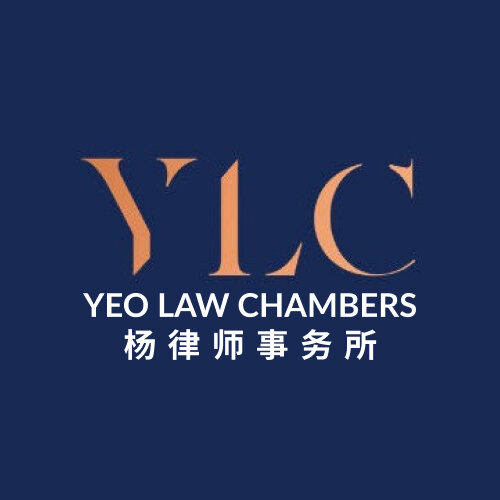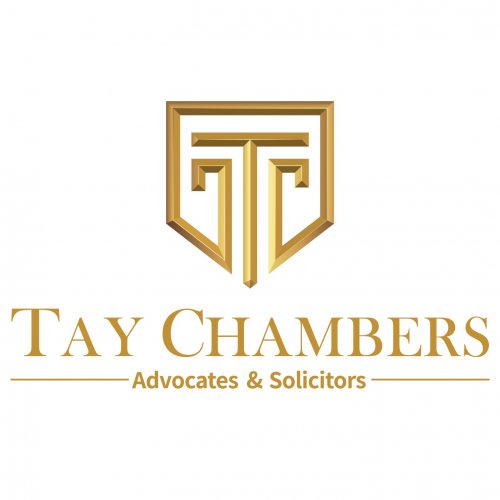Best Government Relations & Lobbying Lawyers in Johor Bahru
Share your needs with us, get contacted by law firms.
Free. Takes 2 min.
List of the best lawyers in Johor Bahru, Malaysia
About Government Relations & Lobbying Law in Johor Bahru, Malaysia
Government Relations & Lobbying in Johor Bahru, Malaysia, involves the strategic management and influence of government policies, regulations, and decision-making processes. This field intersects with business, public policy, and legal frameworks, focusing on building and maintaining effective relationships with governmental bodies. Lobbyists work to convey the interests of various stakeholders, including corporations, non-profit organizations, and other entities, to influence public sector decisions in a way that aligns with their goals.
Why You May Need a Lawyer
Individuals and organizations may require legal assistance in Government Relations & Lobbying for various reasons. Some common situations include:
- Navigating complex regulatory environments and ensuring compliance with local laws and regulations.
- Developing and implementing lobbying strategies to influence governmental policy decisions.
- Representing businesses or interest groups in negotiations with government officials.
- Advising on political contributions and interactions with public officials to prevent legal issues such as conflicts of interest or corruption allegations.
- Ensuring transparency and adherence to ethical practices in all government relations activities.
Local Laws Overview
In Johor Bahru, Malaysia, the legal structure concerning Government Relations & Lobbying is heavily influenced by federal laws and regulations. Key aspects include:
- The Regulation of Lobbying Act 2012, which outlines the registration and disclosure requirements for lobbyists operating in Malaysia.
- The Malaysian Anti-Corruption Commission Act 2009, emphasizing the importance of integrity and transparency in dealings with government officials and agencies.
- Guidelines under the Election Offences Act 1954, which govern political contributions and electoral practices.
- State-level regulations and policies that may affect local governmental interactions and lobbying efforts.
Frequently Asked Questions
What is the role of a lobbyist in Johor Bahru?
A lobbyist acts as a liaison between private organizations and government bodies, advocating for policies or decisions that benefit their clients while ensuring compliance with legal and ethical standards.
How can a lawyer assist in Government Relations & Lobbying?
Lawyers can provide expert advice on navigating regulatory requirements, developing lobbying strategies, and ensuring legal compliance in all interactions with government entities.
Are there registration requirements for lobbyists in Malaysia?
Yes, the Regulation of Lobbying Act 2012 mandates that lobbyists register with the relevant authorities and disclose their lobbying activities and expenditures.
How do anti-corruption laws impact lobbying efforts?
Anti-corruption laws, such as the Malaysian Anti-Corruption Commission Act 2009, require lobbyists to conduct their activities transparently and ethically, avoiding any form of bribery or undue influence.
What are the penalties for non-compliance with lobbying laws?
Penalties for non-compliance can range from fines to imprisonment and may include additional sanctions such as the loss of lobbying privileges.
How can an organization ensure ethical lobbying practices?
Organizations can ensure ethical lobbying by adhering to all legal requirements, maintaining transparency, and establishing internal ethics guidelines and training programs.
Is it possible to lobby at the state level in Johor Bahru?
Yes, entities can engage in lobbying at the state level, provided they comply with both federal and state regulations governing such activities.
Can foreign entities lobby within Johor Bahru?
Foreign entities are allowed to lobby in Johor Bahru, but they must comply with all relevant local laws and may face additional scrutiny and registration requirements.
What types of interactions are considered lobbying?
Lobbying typically includes any deliberate communication or activity aimed at influencing governmental decision-making, policy formulation, or regulation.
What ethical considerations should lobbyists keep in mind?
Lobbyists should focus on transparency, honesty in communications, and ensuring that their actions do not result in conflicts of interest or harm to the public interest.
Additional Resources
For those seeking further information or assistance in Government Relations & Lobbying, the following resources may be helpful:
- The Malaysian Bar Council: Offers resources and directories of legal practitioners specializing in lobbying law.
- The Malaysian Anti-Corruption Commission (MACC): Provides guidelines and educational materials on ethics and legal compliance in lobbying.
- Industry groups and chambers of commerce: Often organize workshops and networking events focused on government relations.
Next Steps
If you require legal assistance in Government Relations & Lobbying, consider taking the following steps:
- Identify your specific needs and objectives regarding government relations and lobbying activities.
- Seek recommendations for lawyers or law firms with expertise in this field, ensuring they have a strong track record in dealing with both federal and state regulations.
- Schedule consultations with potential legal representatives to discuss your requirements and evaluate their approach to handling your case.
- Ensure clear communication of your goals and expectations, including any potential ethical concerns or compliance issues.
- Regularly review and assess your lobbying strategies and legal compliance with your legal advisor to adapt to any changes in the regulatory environment.
Lawzana helps you find the best lawyers and law firms in Johor Bahru through a curated and pre-screened list of qualified legal professionals. Our platform offers rankings and detailed profiles of attorneys and law firms, allowing you to compare based on practice areas, including Government Relations & Lobbying, experience, and client feedback.
Each profile includes a description of the firm's areas of practice, client reviews, team members and partners, year of establishment, spoken languages, office locations, contact information, social media presence, and any published articles or resources. Most firms on our platform speak English and are experienced in both local and international legal matters.
Get a quote from top-rated law firms in Johor Bahru, Malaysia — quickly, securely, and without unnecessary hassle.
Disclaimer:
The information provided on this page is for general informational purposes only and does not constitute legal advice. While we strive to ensure the accuracy and relevance of the content, legal information may change over time, and interpretations of the law can vary. You should always consult with a qualified legal professional for advice specific to your situation.
We disclaim all liability for actions taken or not taken based on the content of this page. If you believe any information is incorrect or outdated, please contact us, and we will review and update it where appropriate.














